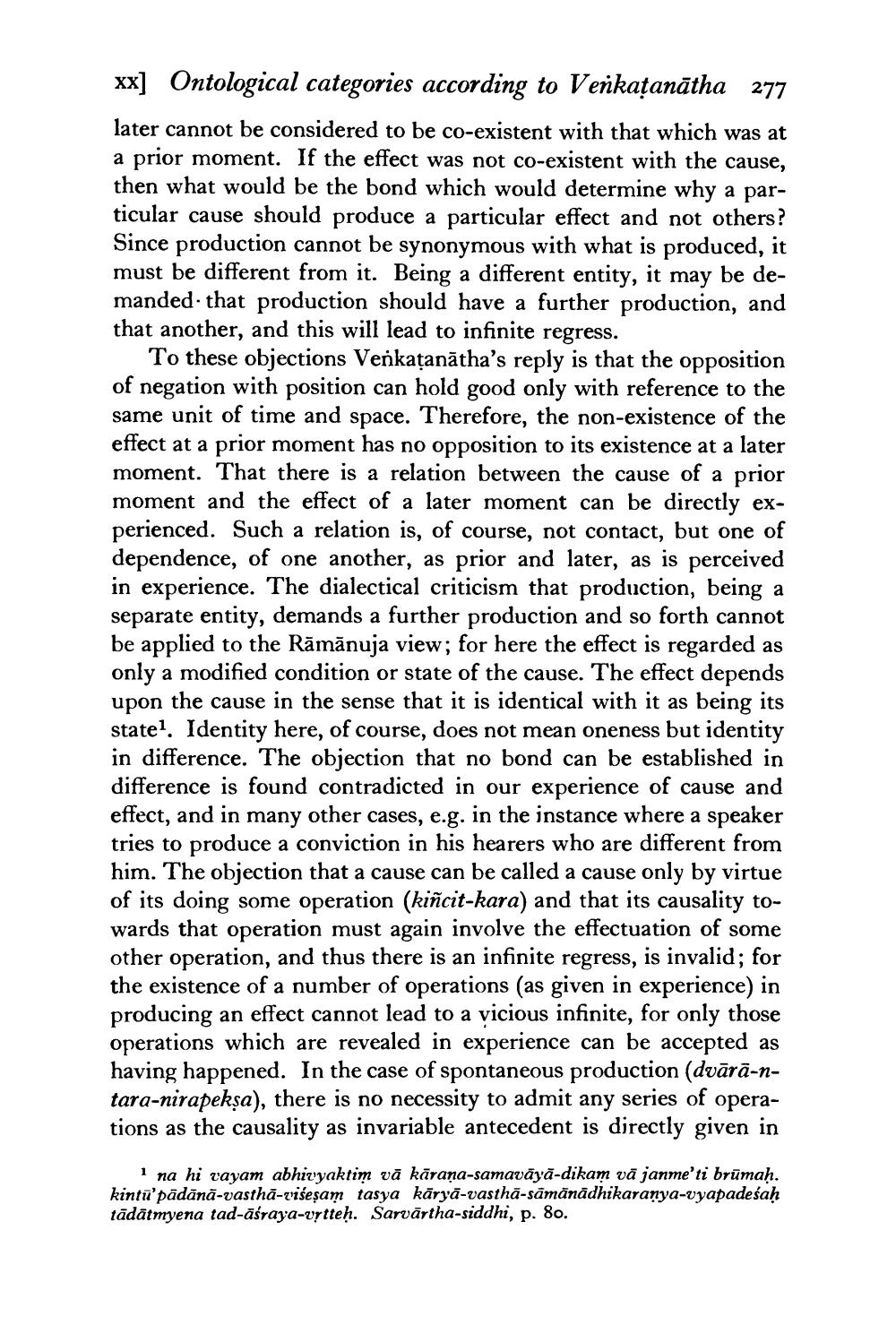________________
xx] Ontological categories according to Venkațanātha 277 later cannot be considered to be co-existent with that which was at a prior moment. If the effect was not co-existent with the cause, then what would be the bond which would determine why a particular cause should produce a particular effect and not others? Since production cannot be synonymous with what is produced, it must be different from it. Being a different entity, it may be demanded that production should have a further production, and that another, and this will lead to infinite regress.
To these objections Venkațanātha's reply is that the opposition of negation with position can hold good only with reference to the same unit of time and space. Therefore, the non-existence of the effect at a prior moment has no opposition to its existence at a later moment. That there is a relation between the cause of a prior moment and the effect of a later moment can be directly experienced. Such a relation is, of course, not contact, but one of dependence, of one another, as prior and later, as is perceived in experience. The dialectical criticism that production, being a separate entity, demands a further production and so forth cannot be applied to the Rāmānuja view; for here the effect is regarded as only a modified condition or state of the cause. The effect depends upon the cause in the sense that it is identical with it as being its statel Identity here, of course, does not mean oneness but identity in difference. The objection that no bond can be established in difference is found contradicted in our experience of cause and effect, and in many other cases, e.g. in the instance where a speaker tries to produce a conviction in his hearers who are different from him. The objection that a cause can be called a cause only by virtue of its doing some operation (kiñcit-kara) and that its causality towards that operation must again involve the effectuation of some other operation, and thus there is an infinite regress, is invalid; for the existence of a number of operations (as given in experience) in producing an effect cannot lead to a vicious infinite, for only those operations which are revealed in experience can be accepted as having happened. In the case of spontaneous production (dvārā-ntara-nirapekṣa), there is no necessity to admit any series of operations as the causality as invariable antecedent is directly given in
i na hi vayam abhiryaktim vā kāraṇa-samavāyā-dikam vā janme'ti brūmah. kintü'pādānā-vasthā-višeşam tasya kāryā-vasthā-sāmānādhikaranya-vyapadeśah tādātmyena tad-āśraya-vrtteủ. Sarvārtha-siddhi, p. 80.




